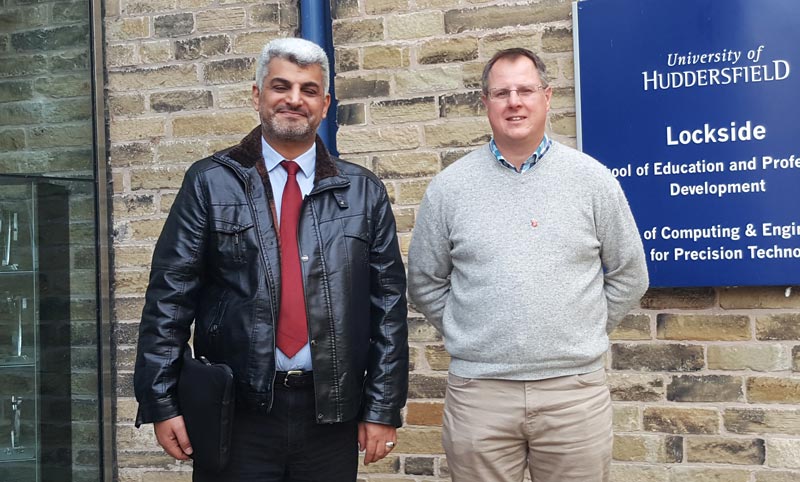Dr Andrew Youde
HudCRES
Just one illustration of the collaborative and developmental research culture within the School of Education and Professional Development - an increasing number of joint publications are being produced as supervisors co-write with their postgraduate researchers.
I have recently had the pleasure of co-authoring a paper with one of the postgraduate researchers that I supervise.
While concerns have been raised about the ethics of co-authorship in some instances - for example: Authorship abuse is the dark side of collaboration and Co-writing with your supervisor - do we need a code of good practice? this blog considers the benefits for both participants in our case.
Yousef Abu Alsuood was recently awarded his PhD for his thesis entitled ‘An Exploration of Leadership in the Cultural Context of Saudi Arabian Higher Education’. Yousef’s second supervisor, Professor Paul Miller had been asked to be the guest editor for an Education Sciences Journal special issue, Societal Culture and Educational/School Leadership, and felt that Yousef’s work would be a good fit. Given the tight timescale for publication, at the same time as Yousef was writing up his thesis, we all agreed that a joint publication would expedite the process.
Such joint working has benefits for the School. As stated above, this helps to develop the research culture, but also a culture of collaboration where our postgraduate researchers are already considered as academics in their own right. It also helps them to get on the publication ladder and both of these can be motivating for other postgraduate researchers.
I asked Yousef for his reflections about co-writing:
- Trust – it is important that the posgraduate researcher has trust in the supervisor that the article was ready and at the right level.
- Auditing – it is helpful that the supervisor knows the thesis, knows the research and the context of that research. They can therefore audit and edit the article appropriately.
- Concentration – my supervisor helped keep the journal article’s focus on the key themes of the research that were relevant for that particular journal. Also, he had a quicker understanding of a journal’s requirements and could focus the article in that direction.
- Planning – joint writing provided motivation – it made the article a priority around other competing objectives, including work and my ongoing PhD. Joint writing and the journal deadline helped to make it happen.

I echo Yousef’s point regarding motivation - the special issue’s deadline really focussed our minds on getting it done.
A further benefit for Yousef was having some of his work published before his viva - that part of his work had already been through a peer-review process was mentioned by his examiners as a key strength.
The benefits for me included a deeper understanding of Yousef’s work and developing a richer understanding of leadership within a Saudi Arabian higher education context – an area I previously knew little about. I particularly enjoyed collaborating with such an enthusiastic and inspirational postgraduate researcher, who is leading practice within his country. Feedback from the Journal’s peer reviewers was also the best I’ve ever had – I wish my own work generated such kind words!
Read the resulting paper 'An Exploration of Cultural Factors and Their Influence on Saudi Arabian University Deans’ Leadership Perceptions and Practices' and let us know what you think.

